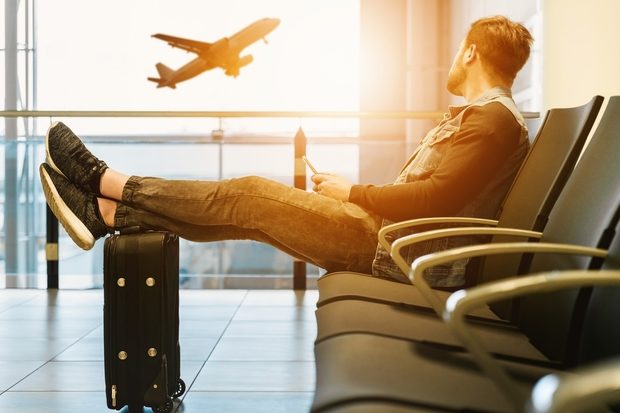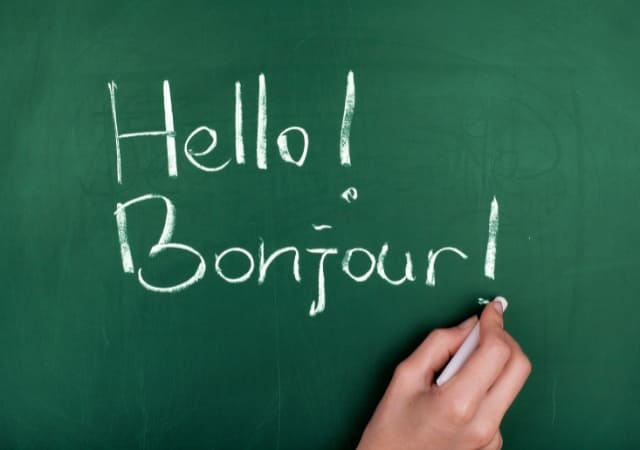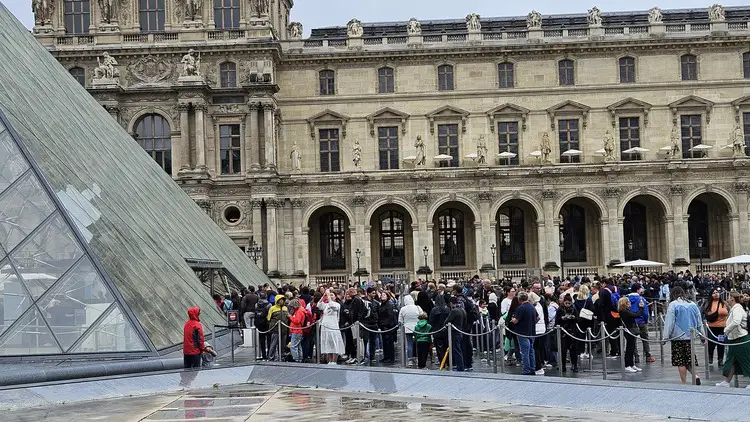Paris has a reputation for its “rude” locals, but often, it’s just a cultural misunderstanding. Let’s uncover the truths behind this stereotype and help you navigate your interactions with Parisians.
1. What Tourists Call Rude, Parisians Call Direct Communication
Parisians are known for being straightforward, which some visitors interpret as rude.
If a shopkeeper bluntly tells you they don’t have something, they’re not trying to be offensive—they’re just cutting to the chase.
This cultural trait prioritizes efficiency over pleasantries, especially in busy settings.
Instead of taking it personally, appreciate the clarity. It’s a refreshing contrast to overly polite small talk and helps you get straight to the point.
2. No “Bonjour” Means No Service
Failing to say bonjour (hello) is a common mistake tourists make.
In France, greeting someone before asking for help or placing an order is essential—it’s seen as basic respect. Not doing so can be perceived as dismissive or impolite.
Before you ask a question or approach a counter, start with a friendly “bonjour” or “bonsoir” (good evening). It sets the tone for a positive interaction.
3. Smoking Is Just Part of Social Life

For many Parisians, smoking is more than just a habit—it’s a social activity.
You’ll see people lighting up on café terraces, outside office buildings, and even while walking down the street. In France, smoking is still common, especially when paired with a coffee or a glass of wine.
While indoor smoking is banned, outdoor seating at cafés and bars is fair game, so don’t be surprised if you find yourself next to a smoker.
Parisians aren’t trying to be rude—they simply see smoking as part of their personal space.
4. Parisians Are Not Big on Small Talk
Parisians save casual conversations for friends and family, so they may seem distant to tourists expecting chattiness.
This doesn’t mean they’re unfriendly; it’s just cultural.
Avoid pushing for small talk and instead engage with purpose.
For example, asking for recommendations about their favorite bakery is more likely to spark interest than commenting on the weather.
5. Busy City, Busy People
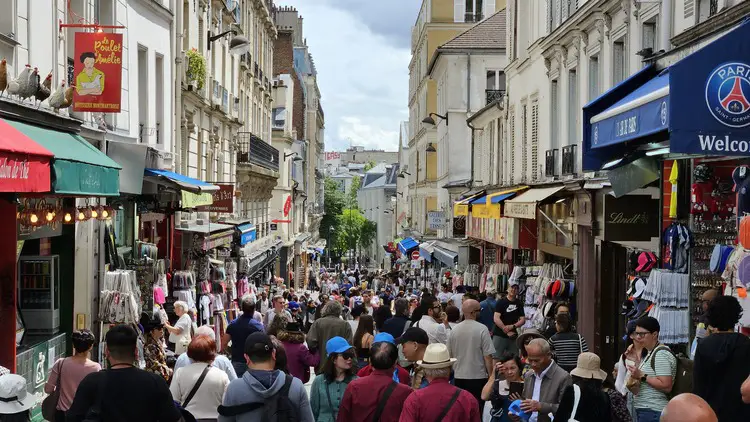
Paris moves at lightning speed, with locals constantly on the go.
A rushed passerby or hurried Metro rider isn’t ignoring you—they’re just focused on their day.
If someone bumps into you without apologizing, it’s likely unintentional.
Visiting during quieter times or stepping outside the tourist hubs can offer a more relaxed atmosphere.
6. Language Barriers Can Cause Misunderstandings
Tourists who don’t speak French may misinterpret neutral behavior as unfriendly.
Parisians tend to be reserved by nature, and when combined with language differences, this can come across as cold.
A local might offer a short response or hesitate to engage simply because they’re not confident in their English, not because they’re being rude.
Learning a few basic French phrases like bonjour (hello), merci (thank you), and excusez-moi (excuse me) can bridge the gap and show goodwill.
7. When Parisian Waiters Leave You Alone, It’s Actually Good Service
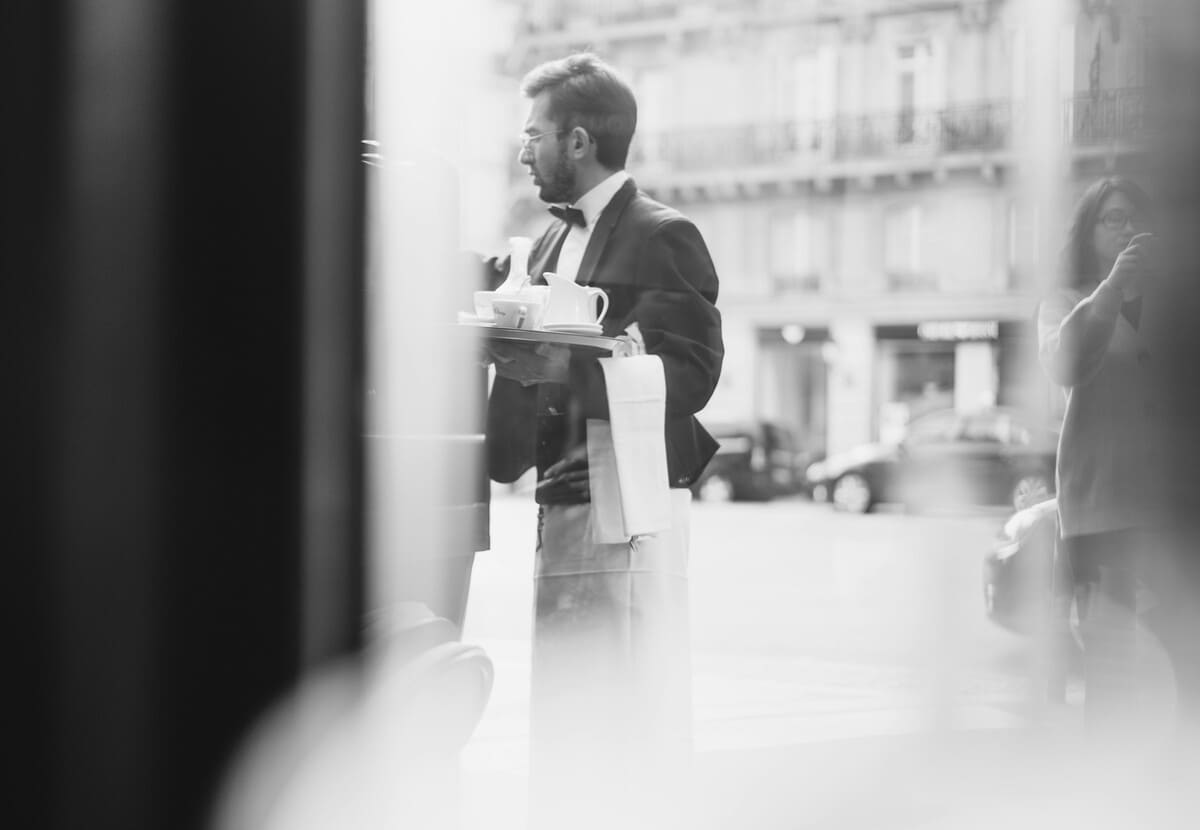
Unlike in some countries, Parisian waiters won’t constantly check on your table.
They respect your space and assume you want to enjoy your meal uninterrupted.
If you need something, simply catch their eye or politely call out “s’il vous plaît” (please).
This relaxed approach lets you dine at your own pace, which is part of the French experience.
8. Small Gestures Matter
Kindness counts in Paris, and small gestures can change the tone of your interactions.
Saying merci (thank you), holding a door, or smiling when someone helps you are seen as marks of good manners.
These simple acts are highly valued by Parisians and often lead to warmer responses in return.
9. Parisians Value Privacy
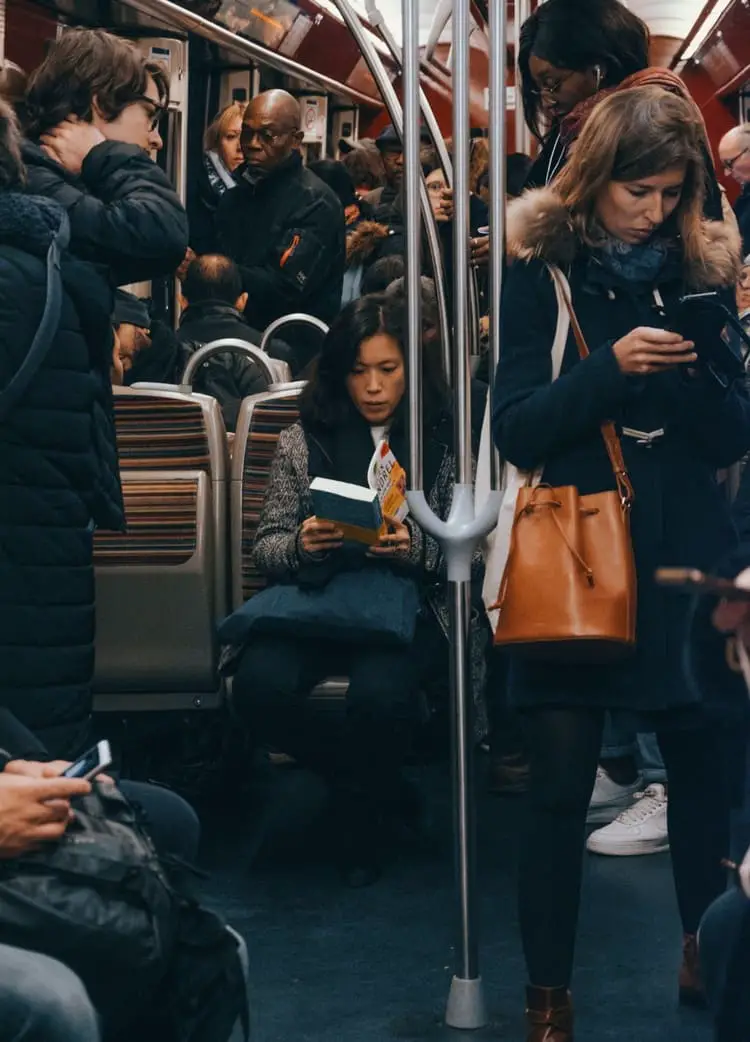
In Paris, people value their personal space and aren’t quick to share details about themselves with strangers.
Loud conversations, particularly on the Metro, are seen as disruptive.
Respecting this unspoken rule helps you blend in and shows an understanding of their culture.
Keep your voice low in public spaces and avoid overly personal questions unless invited.
10. Parisians Keep to Themselves
Parisians tend to be reserved in public, focusing on their day rather than engaging with others.
This can feel cold to tourists used to more open cultures.
However, this behavior isn’t about ignoring you—it’s simply how they navigate their city.
Embrace this independence, and don’t hesitate to ask for help if needed.
11. Tourist Areas Don’t Reflect Real Parisian Behavior
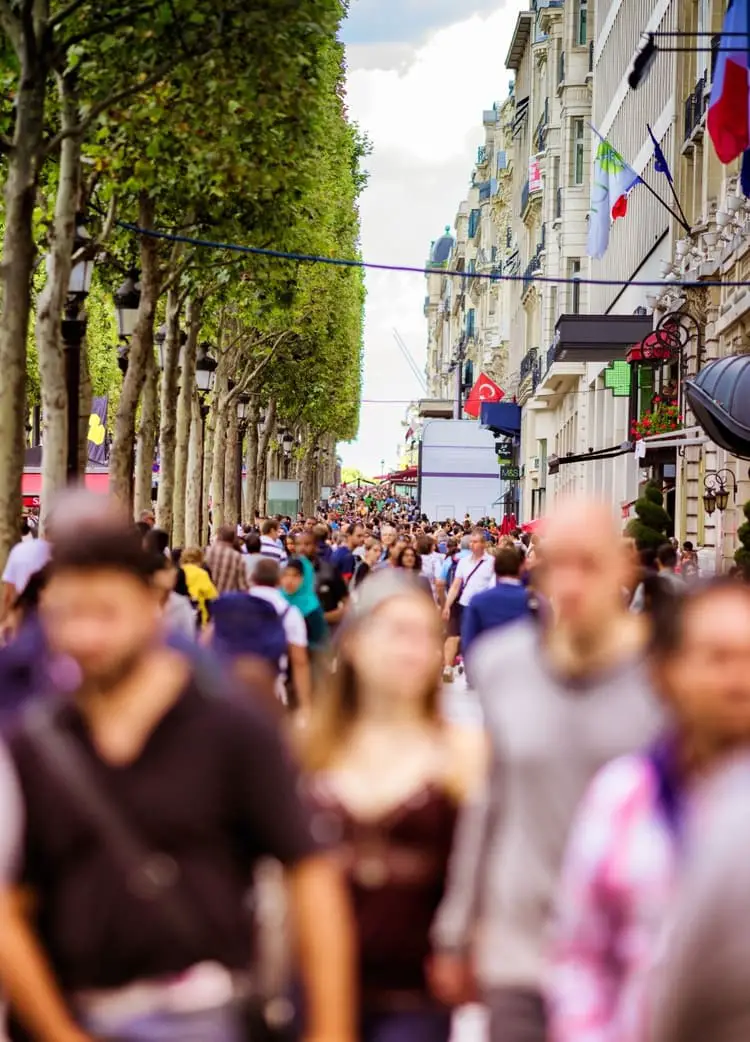
Crowded spots like Montmartre or the Champs-Élysées can bring out the worst in anyone, including locals dealing with waves of tourists.
Parisians in these areas may seem stressed or impatient.
For a more authentic experience, visit quieter neighborhoods like the Batignolles or Canal Saint-Martin, where locals are often more relaxed and approachable.
12. Younger Parisians Are More Tourist-Friendly Than Their Parents
Younger Parisians are more likely to speak English and have traveled internationally, making them more comfortable engaging with tourists.
They also tend to have a more casual, open-minded attitude.
If you’re struggling to communicate, look for someone younger—they’re often eager to assist.
13. When “Rude” Service Is Actually Playful French Humor
Voir cette publication sur Instagram
What may seem like rudeness is often playful French humor, especially in restaurants or cafés.
Parisian waiters are known for their sarcasm and witty comments, which can surprise tourists not expecting it.
For instance, if you ask for ketchup at a fancy brasserie, you might hear, “We don’t do that here,” or if you order a croissant at 5 p.m., they might joke, “What, you want a croissant at 5 p.m.?”
This humor isn’t meant to insult but to add personality to the exchange. If you go with the flow and respond with a smile or a witty remark of your own, it can become a fun and uniquely Parisian moment rather than a misunderstanding.
14. Parisians Treat Regular Customers Better Than One-Time Tourists
In Paris, relationships matter. Café owners or shopkeepers are more likely to go the extra mile for familiar faces.
If you frequent the same café during your trip, you may notice the service becomes friendlier.
Building rapport, even over a short stay, can lead to a more welcoming experience.
15. Parisian Pride Is Often Misread as Arrogance
Parisians take pride in their city, culture, and heritage, and this can sometimes be misinterpreted as arrogance by visitors.
When locals are passionate about their traditions, it may come across as dismissive to tourists who don’t fully understand the context.
For instance, when a Parisian expresses their love for local food or art, it’s often just a reflection of deep pride, not an intention to belittle others.
Rather than seeing this as snobbery, remember that it’s a cultural difference.
16. Parisians Aren’t Fans of Stereotypes Either
Parisians are often labeled as rude before they even say a word, and many are aware of this stereotype.
Being pre-judged can make anyone defensive, and some locals may choose not to engage if they sense they’re being stereotyped.
Instead of assuming coldness, approach interactions with curiosity and respect.
17. It’s Not Personal
If you encounter a curt response or indifferent behavior, don’t take it personally.
Parisians aren’t targeting you—they’re simply navigating a fast-paced environment.
Focus on the many positive interactions you’ll have, and don’t let one moment define your experience.

With a passion for travel and having visited over 50 countries, Dorian is eager to share his favorite spots and expert tips to help you explore Paris and France like a local.


